After getting on the car, I found the car spacious with air conditioning. There were not many passengers, and soon several passengers were boarded one after another, including my friendly smiling neighbor. Several vendors also took papaya salad and other snacks in plastic bags to get on the bus to peddle them. Soon the driver got on the bus, so he quickly told him my destination, Banqing. The driver said enthusiastically that there was no problem and he would call me off.
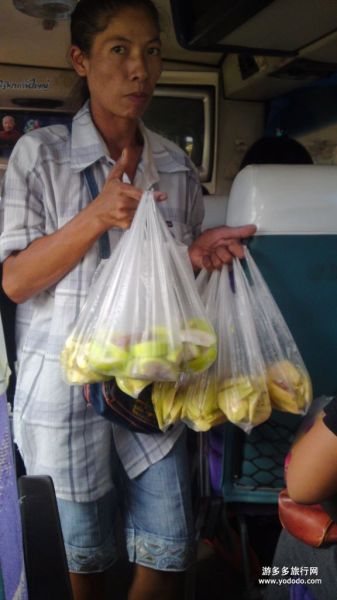
After leaving the station, I was driving on the busy roads in the city. Only then did I realize that Urontani was a bigger city than expected and had a railway station. Soon the car pulled out of the city and drove very fast on the highway. Halfway through, I stopped in two small towns. About an hour later, the bus came to an intersection where several tuk-tuk were parked. The driver and friendly neighbors asked me to get off here. After getting off the bus, after telling the tuk-tuk driver there about the destination, a driver offered 100B, and after some bargaining, he promised 80B to take me there. In the back seat of tuk-tuk, the pastoral scenery along the way:

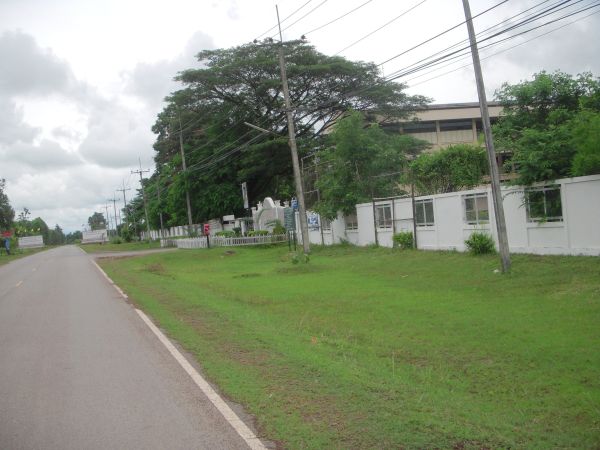
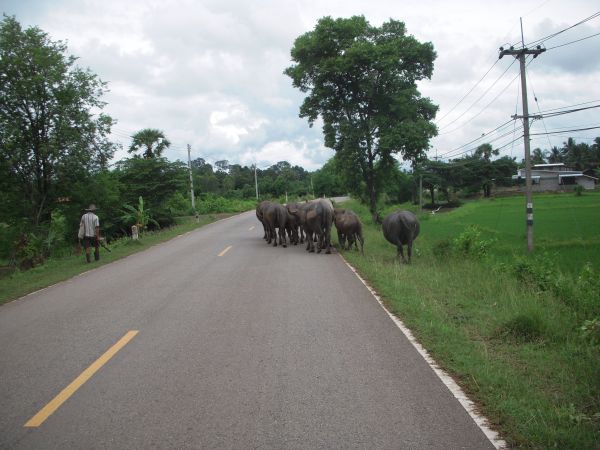
After passing through two villages, I finally arrived in Banqing Town. This is a very quiet town with few tourists. There are many lovely small shops in the town that deal in all kinds of pottery. When I got to the small town, I turned around and didn’t find the hotel. I was a little worried-after all, I wanted to stay here at night. I was in a hurry when I suddenly saw an old woman who made pottery. She went up to her and asked her where she lived. She was fine and understood what I meant. She called a motorcycle and took me to a family hotel.
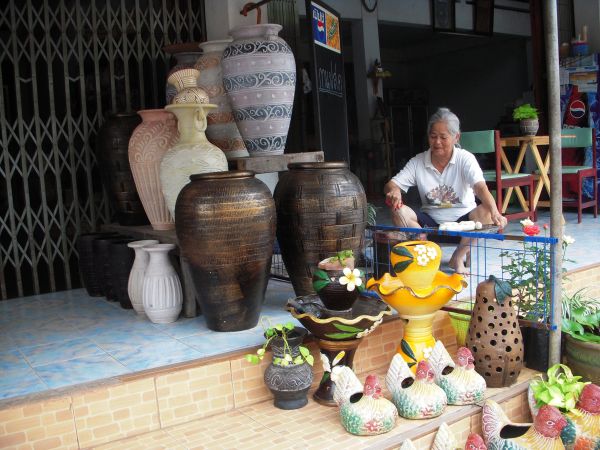
The family hotel is run by a local old man who knows English. One night in his house is not expensive, 160B B. Although the room is shabby and shabby, the basic facilities such as fan mat are also accompanied by a small courtyard full of exotic flowers and plants, and the old man is very hospitable, so this family hotel makes people feel warm. After paying the room fee, he asked him the way to Banqing Museum. The old man said it was diagonally opposite his house. I was relieved.

So I decided to take a look around the town before visiting the Banqing Museum. The town is full of lovely small shops, dealing in all kinds of food and a wide variety of pottery. These small pottery are not very expensive to sell, but they are not very convenient to carry.
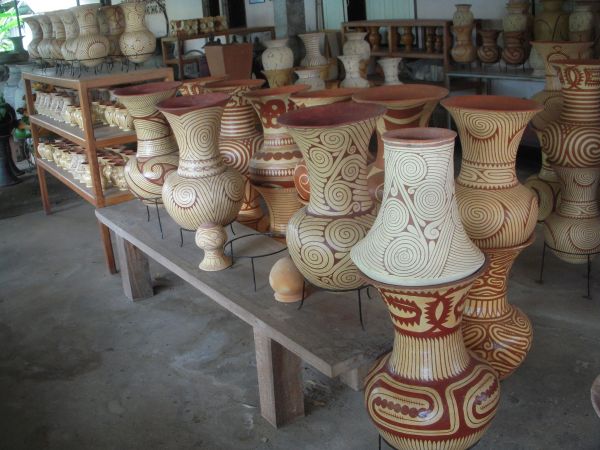
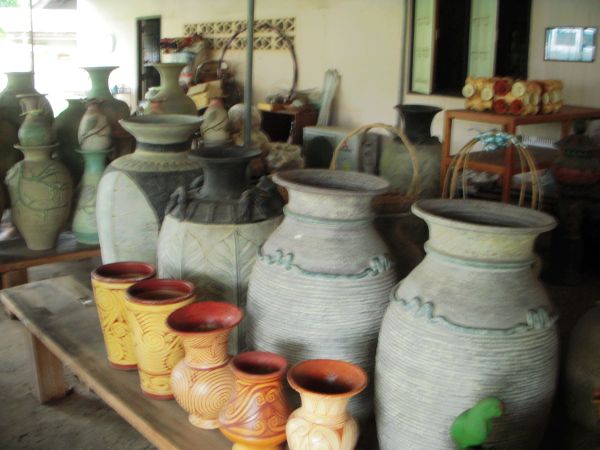
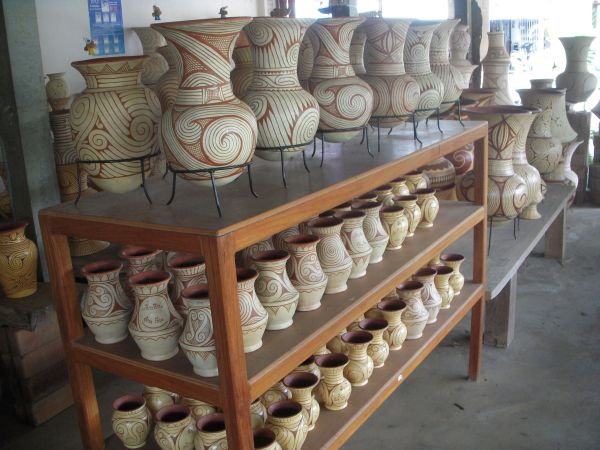
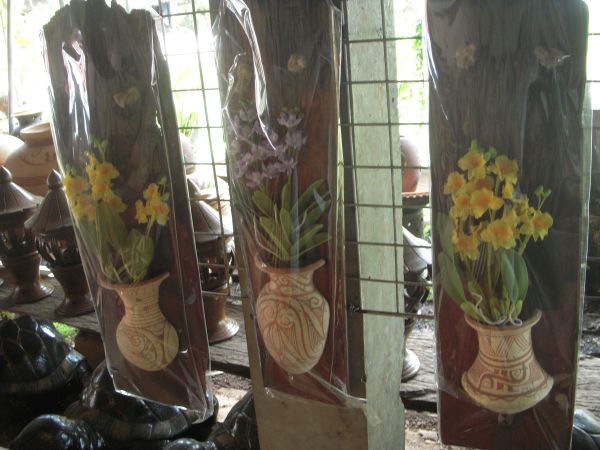

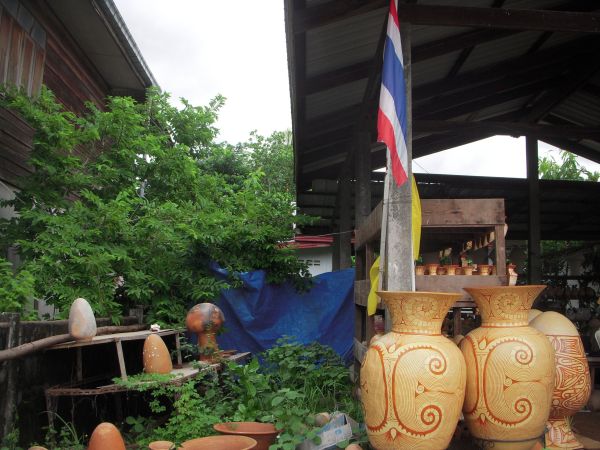



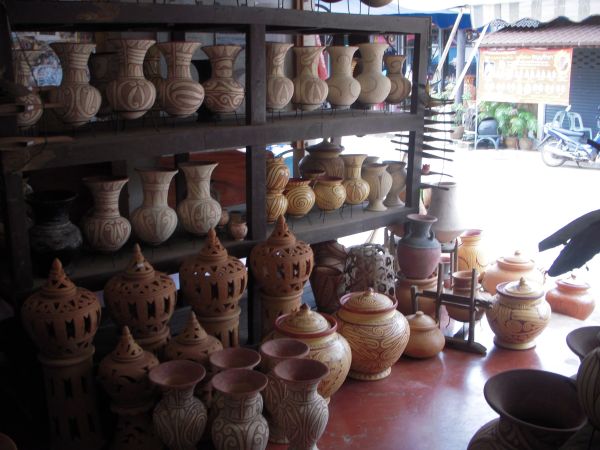
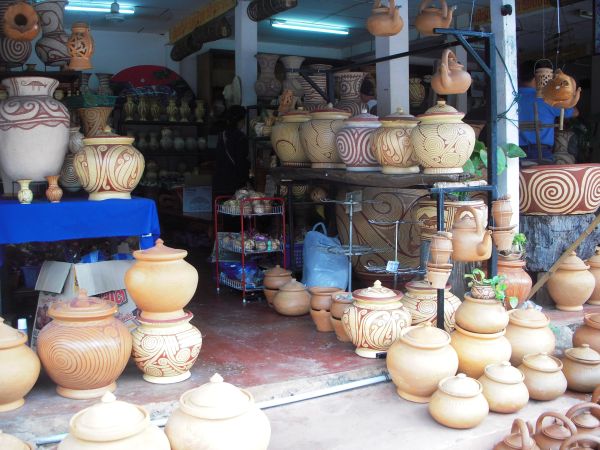
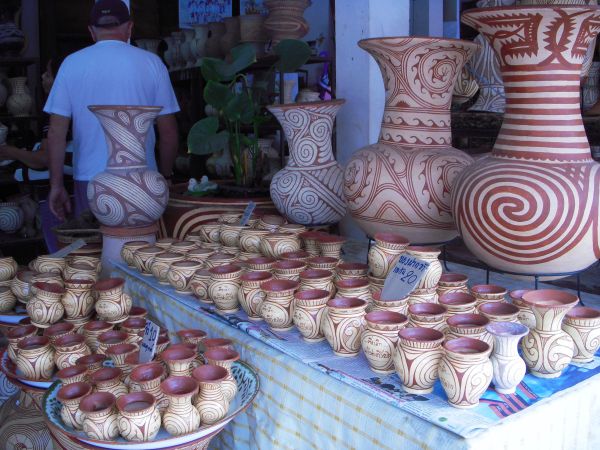
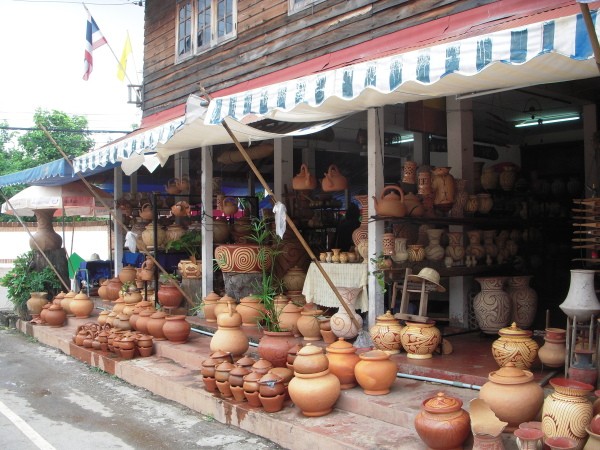
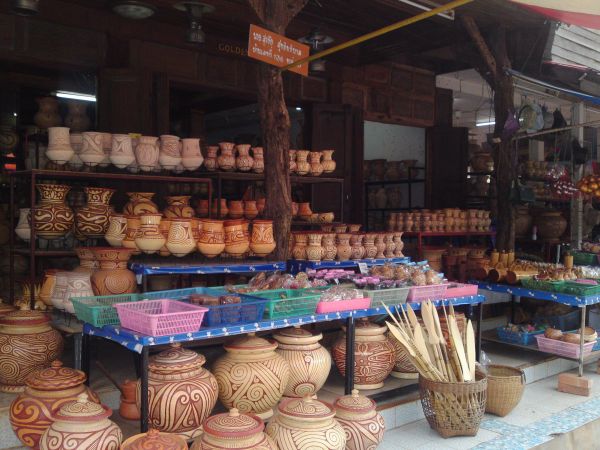
Banqing turned out to be just an unknown small village in northeastern Thailand. The local people have lived peacefully for generations in this small village surrounded by picturesque pastoral scenery and Xanadu. The calm atmosphere was broken until 1966. That year, Smith Young, a history student from Harvard University, came here on a trip and stumbled over a branch while hiking through a nearby forest. He accidentally found some pottery fragments scattered under the dead branches and leaves on the ground. When he got up, he found more pottery fragments around, so he decided that there might be a large group of ancient tombs here. Facts have proved that his judgment is correct. Soon archaeological teams from Thailand, the United States, Britain, Japan, France and other countries came here one after another and unearthed a large number of ancient pottery, as well as bronze ware, small bronze parts and the remains of ancient people. Archaeologists conclude that these artifacts have a history of about 6,000 years-the ancient Banqing was one of the world’s earliest bronze smelting centers, just like Anyang in Henan. The Harvard University history student unexpectedly discovered such a historical relic-the four most important archaeological discoveries in Southeast Asia recognized internationally. Banqing Site, Site Site Site Site has now entered the World Cultural Heritage List-most of the cultural relics excavated are now preserved in Banqing Museum, while a few are preserved in Bangkok and other places.
走进班清博物馆———–遗址中发现的文物大多都保存在这个两层的博物馆里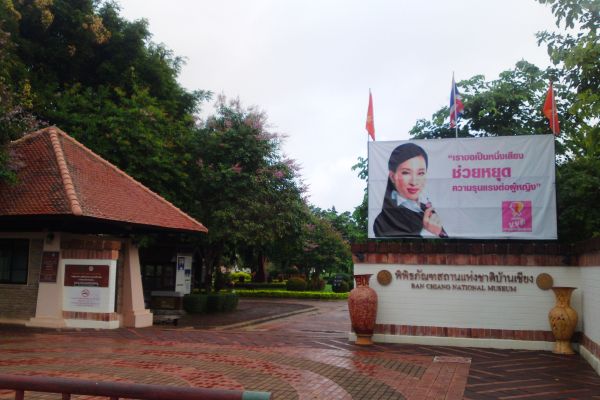
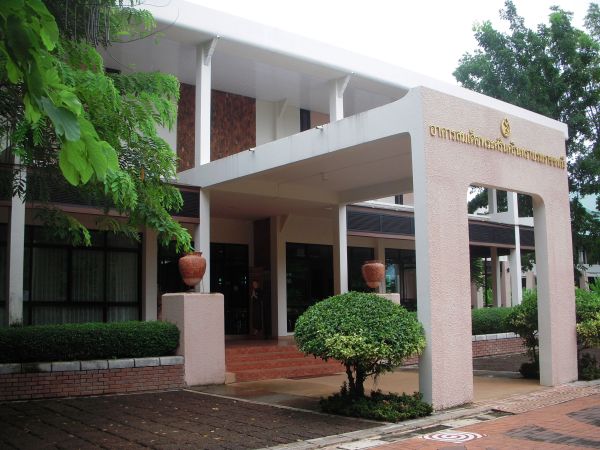
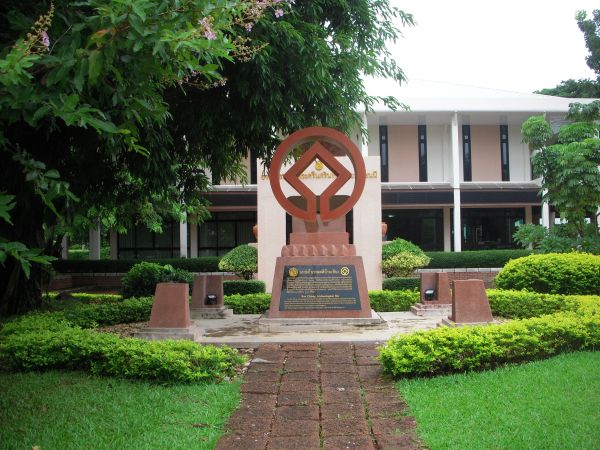

Pottery on display in the exhibition hall at the gate:

Restoration of Cultural Relics in Museums:
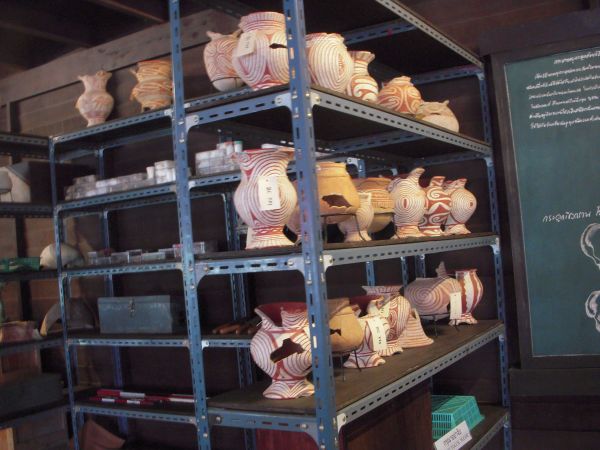
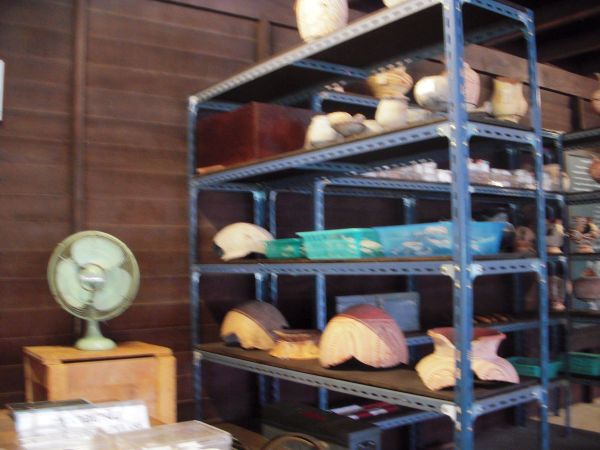
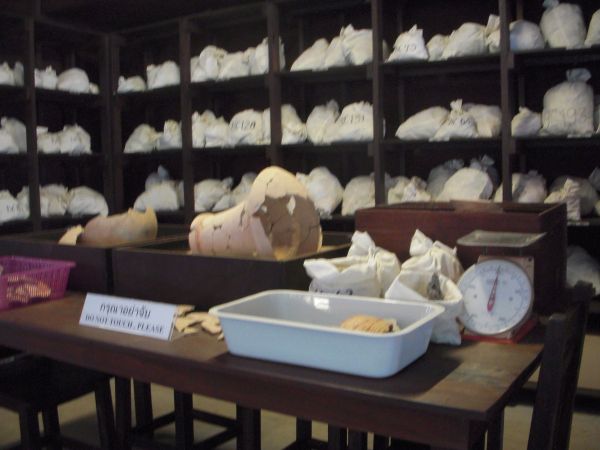
Entering the gate and walking straight inside is the first part of the museum exhibition hall, which mainly displays some pottery excavated from the Banqing site.
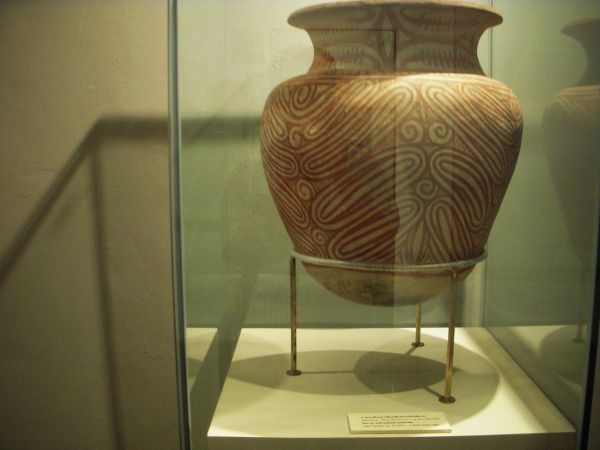



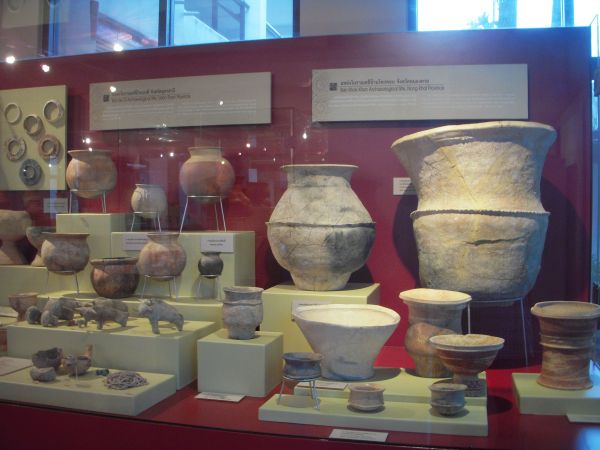

一直往里走,进入到里面的一个房间,这里是展厅的第二部分,里面主要展出的除了一些陶器,还有一些从遗址中发掘出的一些石头和用野兽骨头制成制成的小件,这些都是古人的日常用品;除此之外,还有一些古人的饰品,比如玉质的手镯。

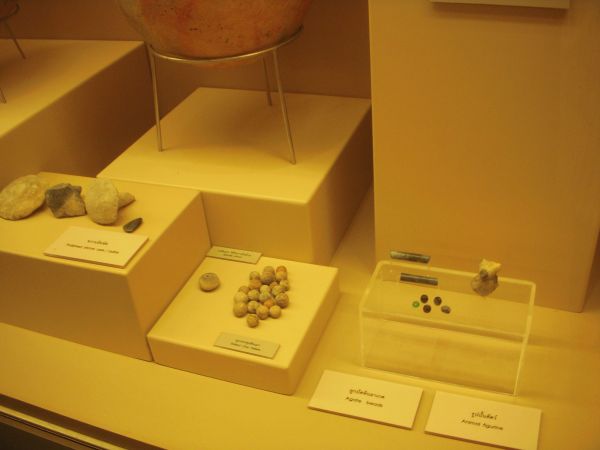
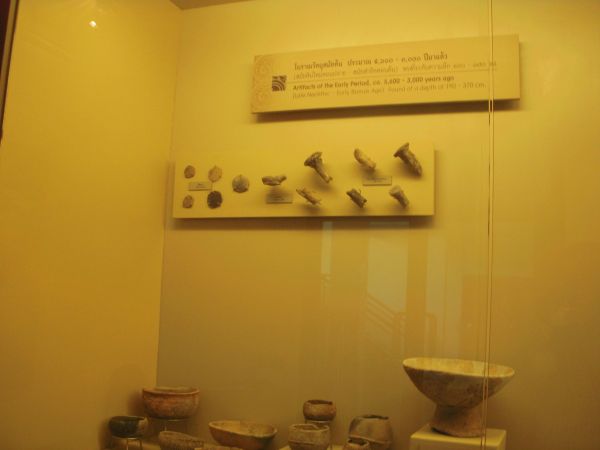

Go further ahead and enter the underground part of the exhibition hall, where the remains of some ancient people are mainly displayed, as well as more ancient ornaments than the front exhibition hall, including jade bracelets, bone necklaces, etc. In addition, daily necessities made of bronze and various labor tools are also on display.







Bronze labor tools have a history of 6,000 years:


The underground exhibition hall also restored to every visitor the slash-and-burn life of the ancient Banqing people and various tools made of beast horns.


After the visit, I walked to the ground and was about to reach the exit of the museum. The museum’s facilities are very good, including the quality of the building and the various attached facilities.
Out of the museum exhibition hall, the environment here is very elegant and the layout is also very exquisite.

After leaving the museum, it was still early, so I walked around Banqing Town. This is a leisurely and quiet town, full of unique small shops and residents’ courtyards, and there are not many foreign tourists.

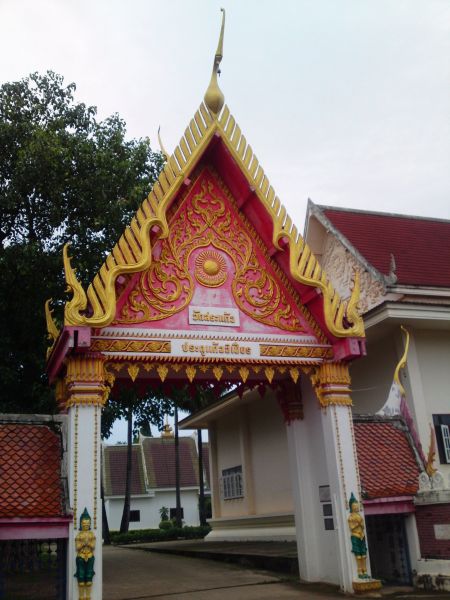



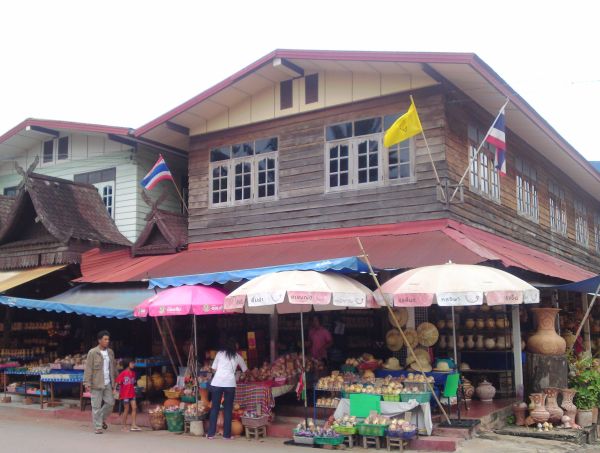

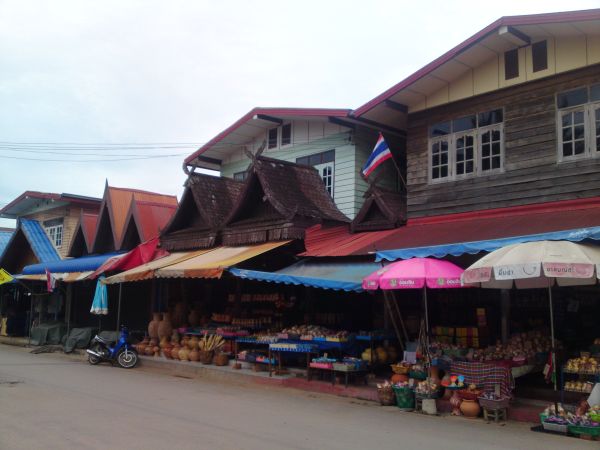
There is also the ubiquitous image of the king of Thailand.

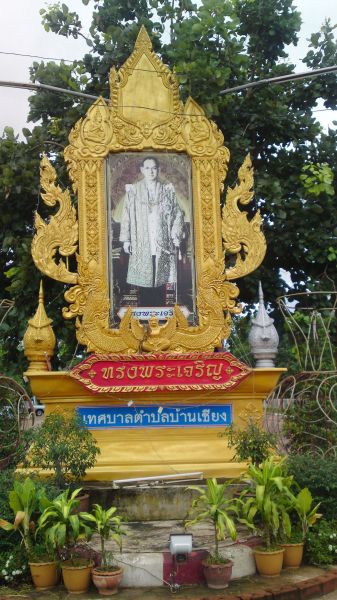
Go to the market again:
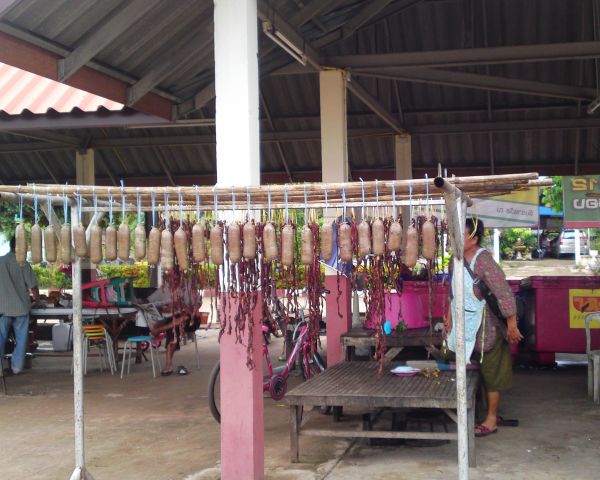


When it was time for dinner, I found that the hotel near the place where I stayed closed early. Following the advice of the innkeeper, I had to go to a farther place for dinner. Finally, I finally found a place with elegant outdoor environment. It happens to be a family gathering here. Jackfruit trees are planted in the courtyard where you eat, and large pictures of welcome pine are pasted on the back wall. Sitting in a chair, graceful guitar music came into my ears, making me relaxed and happy.
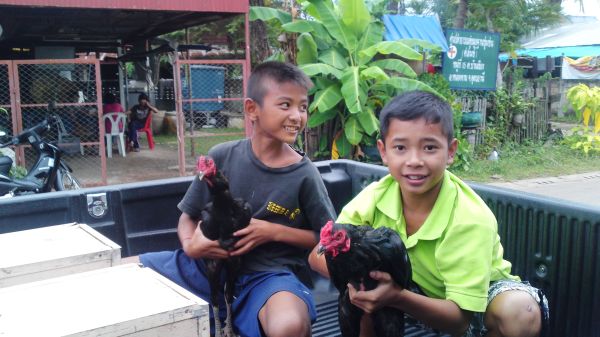
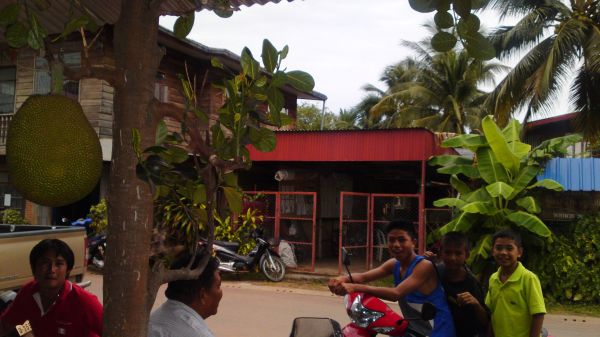

After dinner, when I came to the hotel, the boss seemed very interested in the green tea I made, so I made him a cup and he poured some for the wife of shop-owner. After drinking, his spirit came up and he said it was a little bitter, but he didn’t seem to like the taste of tea very much. I asked him about his previous job. He said that when he was young, he used to be a guard in Bangkok’s Imperial Palace. His wife was a waiter in a hotel near the Imperial Palace. They fell in love and got married. They worked as guards in Bangkok for decades. When they got old and returned home, they opened this family hotel. Now his children are all working in other places. The old man recalled his youth very much, and his eyes seemed to reveal endless vicissitudes of life. At this time, I looked around and found many photos of the old people when they were young and the Thai king in the hall.


That night, it began to drizzle. I enjoyed the cool in the cool yard and sat for a long time.
The next morning, I said I would leave. The boss first invited me to breakfast and then said that he was going to take me to the intersection by bike. I was very happy.
Share breakfast with the host-this is near the Mekong River and there are many big fish.

As I was about to leave, the boss took me around the town on a motorcycle, which took me out of Banqing. On this day, I planned to return to Wuluntani and transfer from there to Chiang Mai. Soon, the car arrived at the intersection, and at this time I felt a little reluctant to part with Ban Halal-unfortunately I only stayed there for one day.
Finally say goodbye to the boss!
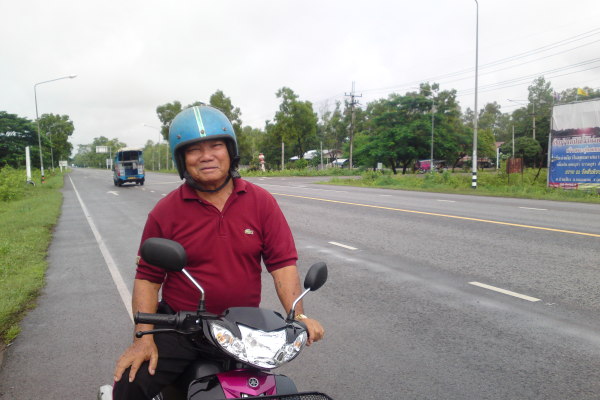
Recent Comments